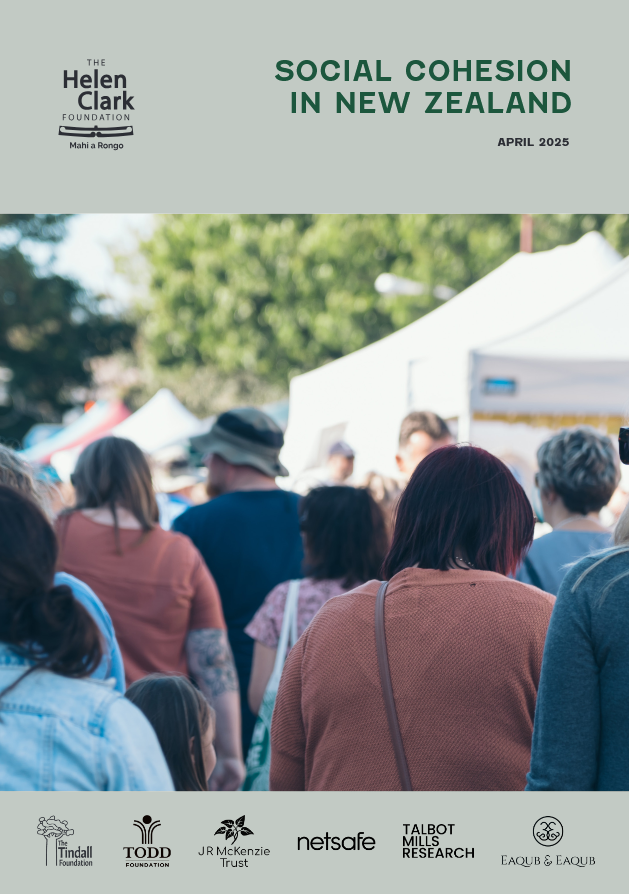The launch event for this report was streamed as a webinar. You can see a recording here.
While much has been written about social cohesion, there have only been sporadic efforts to measure it. Our new report, Social Cohesion in New Zealand, provides a broad thematic measure with Australian comparison. In 2024, 49% of New Zealanders agreed with positive statements that indicate social cohesion. In Australia, comparable questions gave a higher score at 56%. New Zealand’s social cohesion is 8 percentage points lower than in Australia, and New Zealand lags on every dimension.
Is New Zealand’s social fabric fraying?
While this might seem like a big problem, there are small things that each of us can do to help. We have some ideas for how you can take action here.
There is a lot at stake – the opposite of social cohesion is polarisation. Social cohesion can be understood as the glue that holds our communities and society at large together. Without social cohesion, societies become increasingly unstable – from politics to business to civil society to day-to-day life in our communities. This is a pattern increasingly seen around the world, and New Zealand is not immune.
With the survey in this report we have a broad and consistent measure of social cohesion across five dimensions: (1) sense of belonging, (2) sense of worth, (3) social inclusion and justice, (4) participation, and (5) acceptance and rejection.
This gives us an immediate comparison with Australia – with worrying results. We are lagging in every dimension. Over time, we will also be able to measure changes in social cohesion, in what ways and for which groups. The biggest fracturing in social cohesion is apparent across political preference, work participation, income and ethnicity. There were encouragingly smaller differences across age groups and regions.
The survey in this report was made possible by: the J R McKenzie Trust, The Tindall Foundation, Todd Foundation and Netsafe. The analysis and commentary was provided pro-bono via Eaqub & Eaqub Limited (Shamubeel Eaqub & Rosie Collins). Talbot Mills Research supplied the descriptive analysis.
Read more